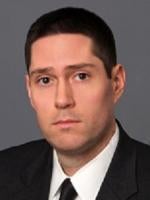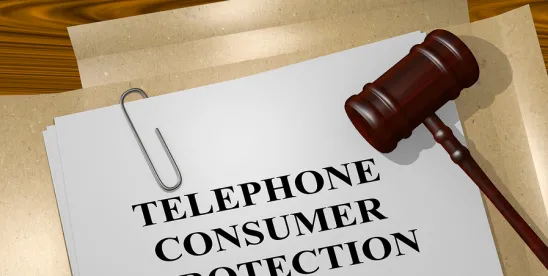A district court in Illinois recently dismissed a lawsuit against Yahoo!, Inc. (“Yahoo”) alleging violations of the Telephone Consumer Protection Act (“TCPA”), reversing its previous decision denying summary judgment. In Johnson v. Yahoo! Inc., Case No. 14-cv-2028 (N.D. Ill. Nov. 29, 2018), the court granted Yahoo’s motion for reconsideration based on recent interpretations of the definition of an automatic telephone dialing system (“ATDS”) under the TCPA, particularly the decision in ACA Int’l v. FCC, 885 F.3d 687, 695 (D.C. Cir. 2018) (previously discussed here). In its ruling, the district court rejected prior Federal Communication Commission (“FCC”) pronouncements and adopted a narrow interpretation of ATDS, holding that only a system that actually dials randomly or sequentially generated numbers can be an ATDS.
Rachel Johnson sued Yahoo in 2014, alleging that Yahoo’s “PC2SMS” texting service was an ATDS and it had used that service to text her in violation of the TCPA. Yahoo’s PC2SMS service caused a text message to be sent to Johnson by pulling her number from a database of stored numbers, an address book, and then automatically sending that number a text message. In an earlier order, the court denied Yahoo’s motion for summary judgment because of disputes over whether PC2SMS was an ATDS under the FCC‘s interpretation of the TCPA. See Johnson v. Yahoo!, Inc., No. 14 CV 2028, 2014 WL 7005102, at *6 (N.D. Ill. Dec. 11, 2014). Yahoo asked for reconsideration and for entry of summary judgment based on the holding in ACA Int’l.
In ACA Int’l, the court set aside the FCC’s explanation of what devices qualify as an ATDS. See ACA Int’l, 885 F.3d at 695. The United States Court of Appeals for the District of Columbia Circuit found that including a device that “can call from a database of telephone numbers generated elsewhere” within the scope of the definition of an ATDS would be incompatible with a definition of ATDS requiring the device to generate random or sequential numbers to be dialed. Id. at 701–03. The FCC’s lack of clarity about the qualifying functions of an ATDS, in addition to its unreasonably expansive understanding of “capacity,” led the court to “set aside the Commission’s treatment of those matters.” Id. at 703.
The district court in Johnson v. Yahoo! explained that it had previously denied summary judgment to Yahoo because it was bound by the FCC’s definition of an ATDS. However, because ACA Int’l changed the premise upon which the earlier ruling was based, the court concluded that reconsideration was appropriate.
Under the TCPA, the term ATDS is defined as equipment which has the capacity “to store or produce telephone numbers, using a random or sequential number generator” and “to dial such numbers”. 47 U.S.C. § 227(a)(1). Yahoo’s PC2SMS system did not have the capacity to generate random or sequential numbers to be dialed — it dialed numbers from a stored list. In its order granting reconsideration, the court explained that a device that stores or produces numbers without the use of a random or sequential number generator is not an ATDS. Accordingly, Yahoo was entitled to judgment as a matter of law.
This decision is noteworthy in that it specifically holds that as a result of ACA Int’l, courts are not bound by prior FCC orders from 2003, 2008, and 2012 interpreting what sort of devices qualify as ATDS; a conclusion that has been reached by other courts in recent decisions, including Marks v. Crunch San Diego, LLC, 904 F.3d 1041 (9th Cir. 2018) (previously discussed here).
Furthermore, the Johnson v. Yahoo! court noted, even if the FCC orders concerning the scope of the term ATDS were not vacated by ACA Int’l, district courts nevertheless may not be bound by FCC’s orders, depending on the outcome in PDR Network, LLC v. Carlton & Harris Chiropractic, Inc., No. 17-1705, 2018 WL 3127423, at *1 (U.S. Nov. 13, 2018) (previously discussed here), in which the U.S. Supreme Court granted certiorari on whether the Hobbs Act requires the district court to accept the FCC’s legal interpretation of the TCPA. The Supreme Court decision, which is anticipated next year, is expected to resolve this question and clarify the weight of the FCC’s orders for future TCPA cases.




 />i
/>i

